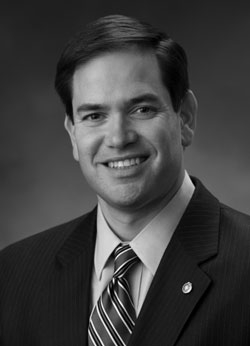The New Jersey Legislature handed Governor Chris Christie a bill last week that plans to raise the state’s minimum wage to $8.50 per hour – a $1.25 increase from the current minimum. The bill is a sign of hope for some New Jersey residents, but many are questioning the wisdom of raising the minimum wage, especially when the state’s economy and local businesses are still struggling to recover from Sandy.
New Jersey is one of 23 states whose minimum wage is $7.25, the same as the federal minimum. However, an increase to $8.50 would put the state third highest, behind Washington and Oregon.
According to the Bureau of Labor Statistics (USBLS), New Jersey has approximately 41,000 minimum wage earners. Another 58,000 make even less than that because they have jobs where they rely heavily on tips in order to make ends meet.
While there are many advocates of the bill that believe an increase in minimum wage will benefit the people of New Jersey, opponents counter that with New Jersey’s economy still recovering, the timing is far from appropriate.
The bill, A2612, comes more than six months after the Assembly first passed the measure, and 11 months after Assembly Speaker Sheila Oliver announced that she would make the wage increase a legislative priority at the Assembly reorganization ceremony in January.
In a press release from the Assembly Democrats dated December 5, Oliver, a supporter of the proposed legislation, explained that as the cost of living in New Jersey continues to rise, it is important for the state legislature to take action to elevate the minimum wage in order to accommodate the cost.
Minimum wage earners bring home approximately $15,000 a year, which translates to just under $300 a week barely enough to support basic needs, Oliver explained in the release.
“You cannot afford housing, food, transportation, medicine; the things you need just to have a modicum of a quality of life on minimum wage. And we have not elevated the minimum wage in New Jersey since 2005,” Oliver said.
Gaining support throughout the state, the bill was voted on in the Assembly last week and passed 44 to 31 with one abstention. The State Senate also approved the bill in May, sending it back to the Assembly for a final vote to change the start date to March 1.
However, the bill is not entirely supported. While on one hand the bill aims to increase the minimum wage, it also contains a requirement to automatically adjust the wage each year based on the Consumer Price Index.
The CPI, according to the U.S. Bureau of Labor Statistics, is an index that measures average changes in the price level of consumer goods and services. “The CPI is a statistical estimate constructed using the prices of a sample of representative items whose prices are collected periodically,” the USBLS website explains.
Under this legislation and based on CPI projected trends, the minimum wage would rise to an estimated $9.49 in 2017. However, many opponents are rendering this aspect of the bill unacceptable.
The fate of the bill to raise the state’s minimum wage now rests with Gov. Chris Christie. Despite the numerous supporters and opponents of the current bill, Christie has not yet gone public with his plans to sign or veto the proposed legislation.
Anticipating a veto, Democrats in the state Senate have already put a question on next year’s ballot that would write the wage increase and cost of living raises into the state Constitution, the New Jersey Senate website explains. A major stipulation of whether or not the bill gets approval is Oliver’s refusal to abandon the bill’s automatic adjustment provision, which she explains typically increases the minimum wage more gradually, and some years not at all.
Assembly Deputy Speaker John S. Wisniewski backs Oliver in her support of the bill, the press release explains. “There are families that need this money. There are families that are working hard, playing by the rules, but struggling to get ahead,”
He continued, “It’s unfair to expect people to be able to raise families and raise themselves up at a wage that does not take them beyond the poverty level.”
Wisniewski vowed, “It’s our obligation as a legislature; it’s our obligation as a state to create the rules that allow these families to earn just a little bit more.”
As Democrats continue to advance the bill, the debate over minimum wage has become increasingly partisan. A measure that has been highly regarded by Democrats in the Assembly, Oliver said, “Democrats are united in their belief in a living wage for all New Jerseyans, and we will now see if the governor shares our core belief.”
She continued, “Hopefully, the governor will sign this bill asis, but if he does not, then we’ll quickly take stock and weigh our next step, including asking the people of New Jersey to decide this important matter.”
Senate President Steve Sweeney, who has worked hand-in-hand with Oliver in support of the bill, expressed a similar notion of unity. In a press release from the New Jersey Senate Democrats, Sweeney said, “Democrats are united in sending a strong message that people who live and work in New Jersey have a basic right to a wage that doesn’t condemn them to a life of poverty.”
He explained in the release that if Gov. Chris Christie doesn’t sign the bill, that Democrats would want to let New Jersey voters decide. Sweeney explained, “Moreover, the additional money earned by those making minimum wage will go right back into the economy. And by tying future increases to the CPI, we will ensure that people can still see a meaningful wage increase, but one that does not cause severe hardship for business owners.”
Dr. Steven Pressman of the Economics and Finance Department explained that Monmouth students would also benefit if the minimum wage were increased. “If this helps keep students out of debt, or reduces their debt when they graduate, this will be a big plus for them over their entire life,” Pressman said.
When there is an increase in minimum wage, there are a number of potential effects on the economy, Pressman described. “One possible result is that employers will try to get by with paying fewer workers higher wages,” he said.
Pressman added, “Low income workers who’s wages are increased will stimulate the economy by spending more money. Therefore, local businesses will also benefit from an increase because consumers will spend more in local economy.”
Considering those factors, Pressman explained, there can either be an increase or decrease in employment. “When the purchasing power of the federal minimum wage was at it’s highest in the 1960’s, economies were prospering. Higher minimum wages give more workers more income, thus increasing stimulus to the local economy.”
The bill, if passed, could prove a blessing in disguise while New Jersey recovers and rebuilds from Sandy. As more low-income earners contribute to local businesses, the local economy might see positive results.
Josh Mann, a business management major and President of Alpha Kappa Psi, the University’s Business Fraternity, expressed that he agrees with the minimum wage increase. “I think it should be done more often because the cost of living changes every year and wages should reflect that,” he said.
Mann also believes that the increase will have a considerable influence on students. “Most college students don’t have the time to work full time jobs, so they get local jobs that often pay minimum wage. With an increase in wages, students would see a direct increase in their paycheck and have more expendable income which would help the whole area’s economy,” he said.
Christian Klein, a senior business management major, also supports the minimum wage increase saying, “With the current state of the economy and the rising cost of living, I think an increase is a good idea.”
“Everything gets more expensive over time, so it would only be right to raise the minimum wage,” Klein explained, “By raising minimum wage. It helps people be able to afford the things they need and cover their bills, especially in lower income brackets.”
As New Jersey residents await Gov. Chris Christie’s decision, the debate between the state’s legislators continues, drawing reactions from minimum-wage earners and low-income families across the state.


